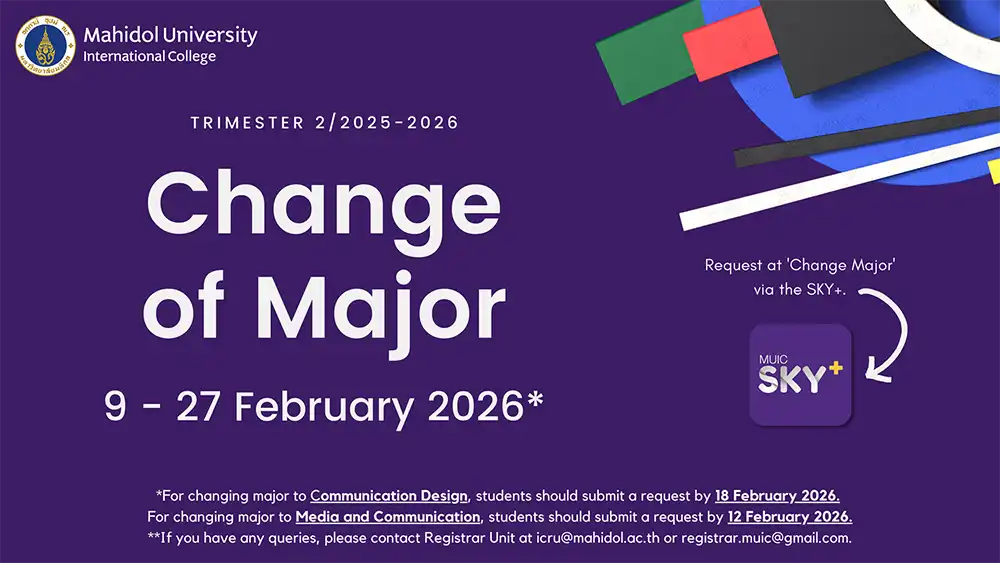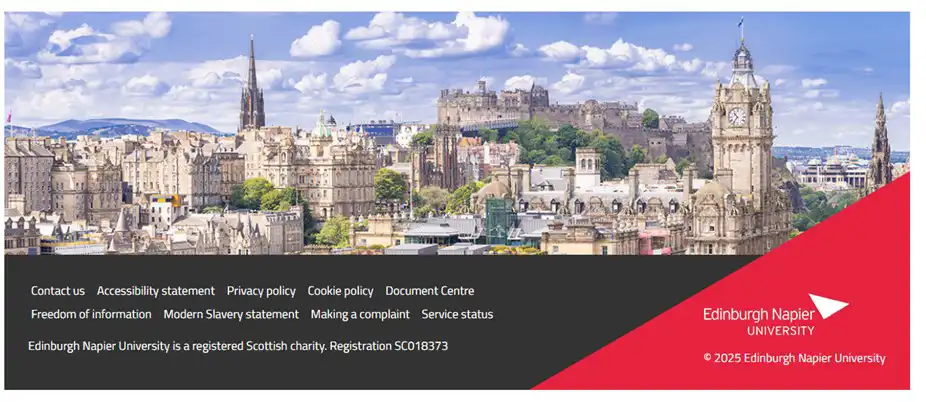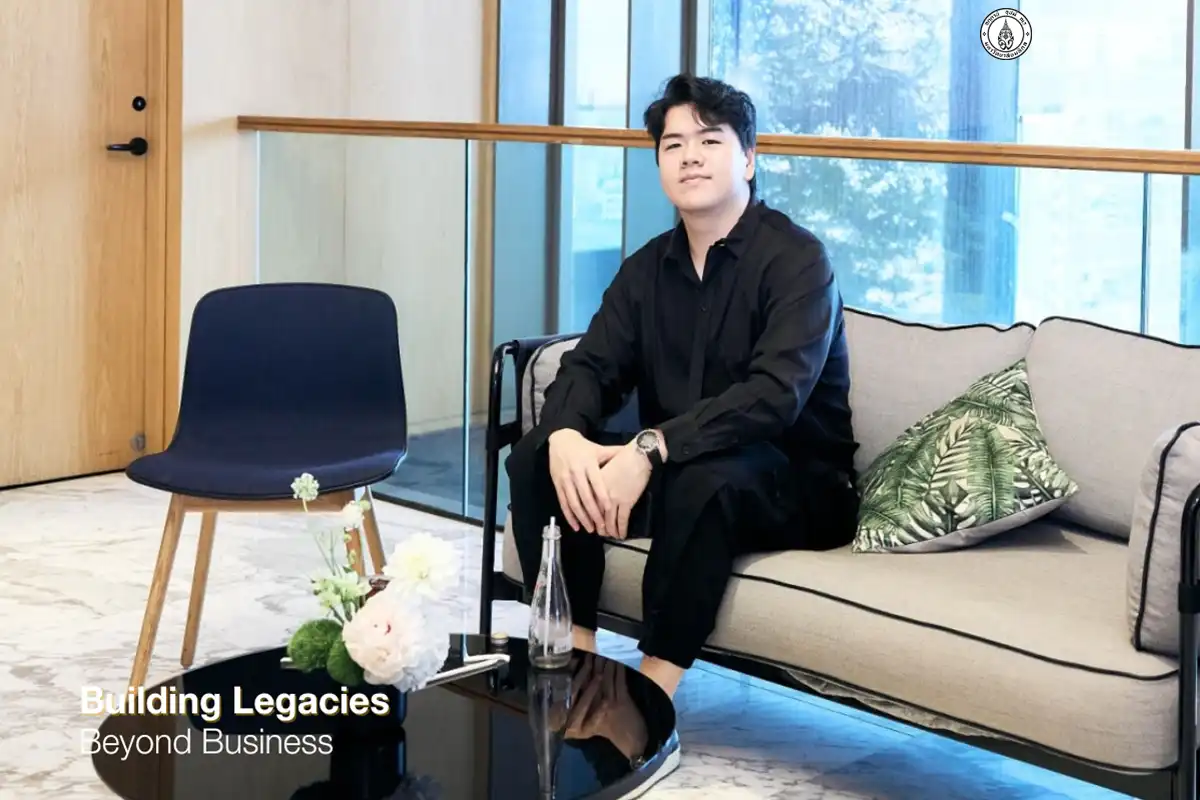Please choose a news and article category.
Recent MUIC Events
Change of major Trimester 2/2025-2026
MUIC Job Fair 2026
FAST-TRACK IELTS # 6
MUIC 360 Degrees
Pieces of Advice for Future Exchange Students
April 1, 2025 2025-04-01 9:30Pieces of Advice for Future Exchange Students
Going on exchange studies abroad is surely among the items of a college student’s bucket list. The chance to travel to another country, study in another university, learn new lessons, meet different fellow students, get acquainted with different cultures, make new friends and undergo much positive experience.
But it’s not easy, as three such outbound students interviewed can attest to. And to help their fellow MUIC students who are aspiring to join the student exchange program someday, they are selflessly sharing here some very useful tips!

Boonyaporn “Aum” Phakum
International Business
- Look for a university that fits your academic goals and offers courses you can transfer to MUIC. This will make your exchange smoother and help you stay on track with your studies.
- Scholarships like Erasmus can help reduce financial stress, so take the time to apply and prepare the required documents.
- Studying abroad is about stepping out of your comfort zone. Embrace cultural differences, try new things, and make the most of every opportunity.
- Living abroad can be expensive, so budget carefully and consider part-time jobs to support yourself.
- Not everything will go as planned, but learning to enjoy small moments can make your experience more rewarding and less stressful.

Suwichaya “Khim” Sinsadok
Biological Sciences
- Don’t be afraid to explore new things, get out of your comfort zone. If you really want to do it, just go for it. You only live once.
- An exchange experience, either for just a term or a year, will change your life without even realizing it, especially because MUIC has an endless partnership with global universities, you can go anywhere your heart desires. You are definitely missing out if you’re not applying!
- If you do not know where you want to go for an exchange program, I recommend you start by visualizing where you want to live, as your study is an important part of the exchange program but living in a certain country will definitely shape your exchange experience.

Weerapat “Kaow” Chiranon
Biological Sciences
University abroad you went to: National University of Singapore (NUS), Singapore
- Thoroughly research courses and instructors: Investigate the courses available at the prospective university, particularly those that align with your major. Understanding who teaches these courses can open opportunities for engaging in projects or research collaborations, thereby enhancing your resume or CV for future job applications.
- Timing of your exchange: It’s beneficial to undertake an exchange after completing most of your core or foundational courses. This strategy allows you to enroll in specialized or theoretical courses unique to the host university, providing access to exclusive knowledge and perspectives not available at your home institution.
- Select unique and specialized courses: Opt for courses that are distinctive to the host university and not merely standard offerings like introductory economics, which may have similar curricula across institutions. The objective is to acquire unique insights and skills that are not readily available at your home university.
- Assess university competitiveness and environment: Research the academic rigor and competitiveness of the prospective university. Understanding the pressure levels and grading systems is crucial, as highly competitive environments can lead to increased stress. Reflecting on my personal experience as an exchange student at the National University of Singapore (NUS), I encountered a highly competitive academic environment. NUS employs a bell curve grading system for certain modules, meaning that grades are distributed based on relative performance. In this system, achieving top grades often requires outperforming a significant majority of peers, which can be daunting.












